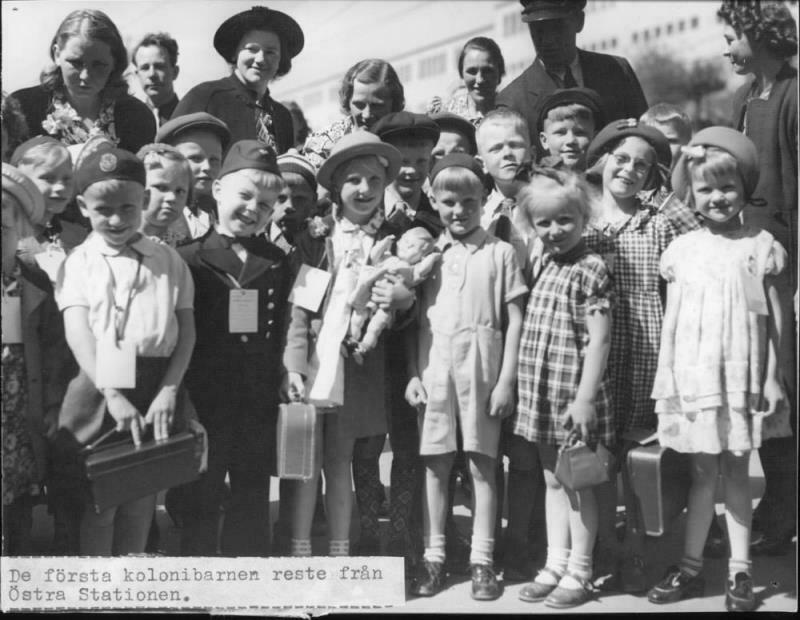
Figure 1.--Here we see some Swedish childrenn off to summer camp in 1940 only 2 months after the NAZIs invaded neighboring Denmark and Norway. The photo caption read, "De första kolonibarnen reste från Östra Stationen." meaning 'The first colony (summer camp) children traveled from the Östra [Stockholm Eastern] Station.' The newspaper caption read, 'De yngsta resenärerna foro med tåg från Östra station: Skada att inte alla stockholmara som gett till Barnens dag fingo se den glada avfärden när amåbarnskolonien i Ellassons by på måndag förmiddag reste ut till Barnesn Ö från Östra station. Med förväntan i blanka ögon och de små väskorna eller bästa dockan härt kramad i handen stodo de 300 yngsta sommargästerna och väntade på att bli uppropade till sina olika vagnar för att fara bort från heta trottoarer i den sommargassiga staden till bad och lantliv ute i skärgården. Visserligen blev det här och där en liten gråtkonsert, när mamma sade adjö, men 'det brukar snart gå över bara vi kommit ett stycke ut på banan', tröstade överledaren folkskollärare C.F. Wickholm som har god erfarrenhet, eftersom han i många år förestått amåbarnskolonien.' That translates as something like, 'The youngest travelers left by train from Östra station: ????? that not all Stockholmers who gave to Children's Day had a good time seeing the happy departure when the Amoy children's colony (summer camp) in Ellasson's village on Monday morning traveled to Barnesn Ö from Östra station. With the expectation in shiny eyes and the small bags or the best doll hugged in hand, the 300 youngest summer guests stood waiting to be called to their various wagons to move away from hot sidewalks in the summer-gaseous city to swimming and country life out in the archipelago. Admittedly, this and there was a little crying concert, when my mother said goodbye, but 'it will usually go away after only a bit on the tracks,' the headmaster comforted the folk-school teacher C.F. Wickholm, who has good experience, since he has for many years presided over the colony of children." Swedish readers are encouraged to improve our translation. |

